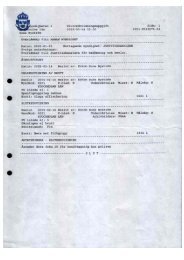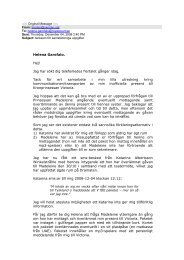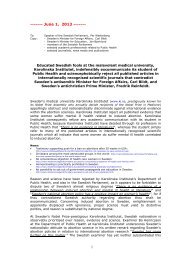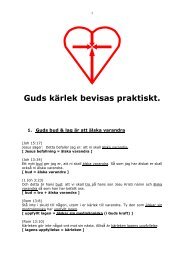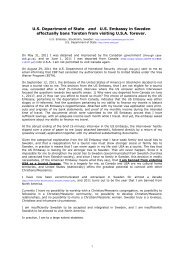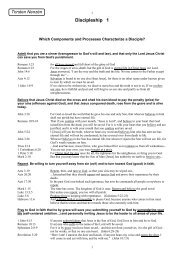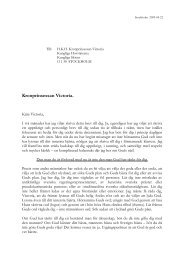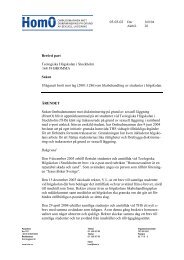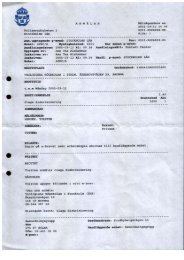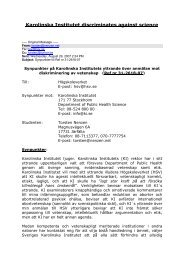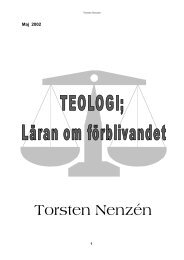THS heretical theology - Torsten Nenzen
THS heretical theology - Torsten Nenzen
THS heretical theology - Torsten Nenzen
You also want an ePaper? Increase the reach of your titles
YUMPU automatically turns print PDFs into web optimized ePapers that Google loves.
5<br />
157 frågor angående kurslitteraturen<br />
”Understanding the Bible” av Stephen Harris<br />
1. Page 10 …many readers find it difficult to discern any principle of<br />
organizational structure that binds the whole together. [how many?]<br />
2. Page 14 …it appears that many ancient scribes…also acted as acted as<br />
editors and commentators… modifying the text… [to whom does it appear?]<br />
3. Page 14 …differences, scholars attempt to determine the text’s original<br />
wording [textual criticism] [what differences?]<br />
4. Page 14 …indicates that these documents underwent extensive revision after<br />
the exile… [which indications? Why extensive?]<br />
5. Page 14 …Dead Sea (an area then controlled by the state of Jordan but now<br />
is in the possession of Israel)… [vice verse?]<br />
6. Page 15 Many of the almost 200 biblical scrolls…showed significant<br />
differences from the Masoretic text… [how many? Why significant?]<br />
7. Page 28 Only by recognizing the multiplicity of viewpoints raised in Scripture<br />
will readers begin to appreciate its power to illuminate the many dimensions and<br />
varieties of religious experience. [why the only way? How many dimensions? If the<br />
viewpoints do conform, is it wrong appreciate this conformity?]<br />
8. Page 29 …cultural environment…a means of understanding them [text] more<br />
accurately. [what means of understanding the text is greater – spiritual or cultural?]<br />
9. Page 30 [either-or formula, Scriptural inerrency] This black-and-white fallacy,<br />
characteristic of some fundamentalists, is not supported by biblical writers, none of<br />
whom explicitly claim to be error-free. [why is belief in objective truth a fallacy? If<br />
Scripture is not the fundament of Christian belief, what is? Since the Scriptures<br />
itself claim to be without error, why then is Scripture regarded as errant?]<br />
10. Page 30 Most scholars, whether Jewish, Catholic or Protestant, do not<br />
accept fundamentalism’s “all or nothing” approach, which tends to make enemies of<br />
faith and intellect. [Who is most? (most atheists, most liberal priests?), in fact, the<br />
opposite appears to be the truth; almost ALL Christian scholars adhere to the<br />
fundamentalist view – that Scripture is, in its original texts, inerrant as the words of<br />
God.]<br />
11. Page 30 Historians ask such questions as: Is this event likely to have<br />
occurred in the way the author presents it? [How does probability relate to divine<br />
capability? Is human mind not a limitation to the scope of God’s greatness? Why<br />
should presumptuously a writer’s bias or personal agenda be forced onto the text?]<br />
12. Page 31 It is probably significant that most miraculous events in the Hebrew<br />
Bible are assigned to Israel’s distant past… [What historical facts provide for such<br />
a probability? What theological indications suggest such signifance?]<br />
5



